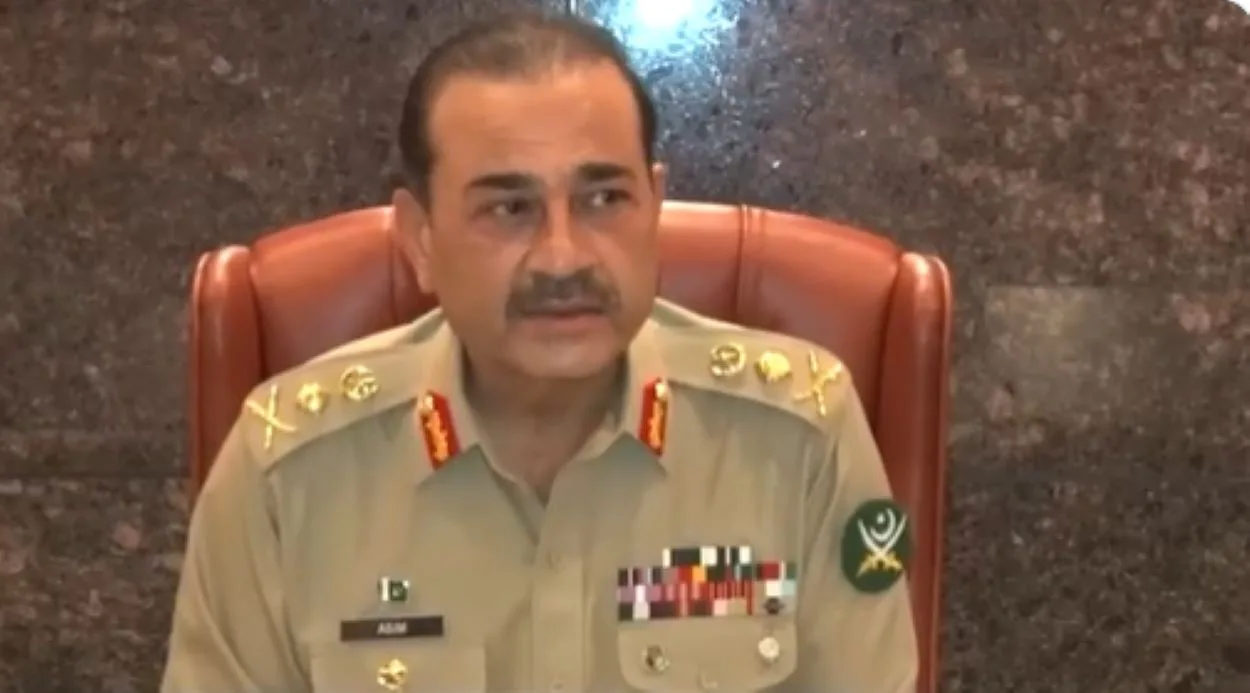In a recent official statement, high-ranking officials of the Pakistan Army called for strengthening the rule of law, specifically targeted toward those who orchestrated an insurrection against the country and its institutions.
The historical statement emerged following the 81st Formation Commanders Conference at the General Headquarters in Rawalpindi, presided over by Chief of Army Staff General Asim Munir.
The forum, which comprised corps commanders, principal staff officers, and all formation commanders of the Army, echoed the need for more stringent enforcement of the law against individuals who schemed to instigate a politically driven rebellion. They pointed out that while legal trials of those directly involved have started, it’s high time to intensify the legal crackdown on those who manipulated the unrest behind the scenes.
During the conference, the commanders roundly denounced the attacks on May 9, stating their unwavering commitment to ensuring those responsible, particularly those desecrating martyrs’ monuments, Jinnah House and attacking military installations, face swift justice. They clarified that these individuals would be prosecuted under the Pakistan Army Act and Official Secret Act, both constitutional derivatives.
Commanders further asserted that attempting to shield the culprits behind claims of imaginary human rights violations would be futile. They noted that such efforts cannot negate the overwhelming evidence amassed against the perpetrators. They also warned that any attempts to hinder the complete defeat of hostile forces would be firmly countered.
The commanders expressed their deep respect for the martyrs from the armed forces, law enforcement agencies, and civil society, offering prayers in their memory. They reiterated that Pakistan and its Armed Forces will always honor the sacrifices of these martyrs and their families with the utmost dignity and respect.
The meeting provided a comprehensive overview of the current environment, national security challenges, and the Army’s operational readiness to respond to traditional and non-traditional threats. They also discussed integrating “structural changes and niche technologies” into the arsenal to improve operational readiness in line with emerging security imperatives.
General Asim Munir emphasized the Army’s commitment to its national duties, including safeguarding the country’s territorial integrity and sovereignty. He also underlined the crucial bond between the people and the armed forces, evidenced by the events of May 25.
The forum dismissed allegations of custodial torture, human rights abuses, and political repression against law enforcement agencies and security forces as unfounded. They stated that such claims only mislead the public and smear the armed forces’ reputation for petty political gains.
The Chief of Army Staff affirmed that any attempts by hostile forces to spread societal discord and confusion through disinformation would continue to be effectively countered with the nation’s full support. He encouraged the commanders to maintain high standards of professionalism and motivation during operations and strive for excellence during the training of their formations. He praised the commanders for their unwavering attention to the well-being and morale of their soldiers, considered the bedrock of the Army’s operational readiness.
The forum concluded with a united resolve to make any necessary sacrifices for the security and stability of Pakistan, assured of the continuing support of the nation’s citizens.






